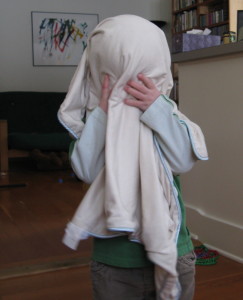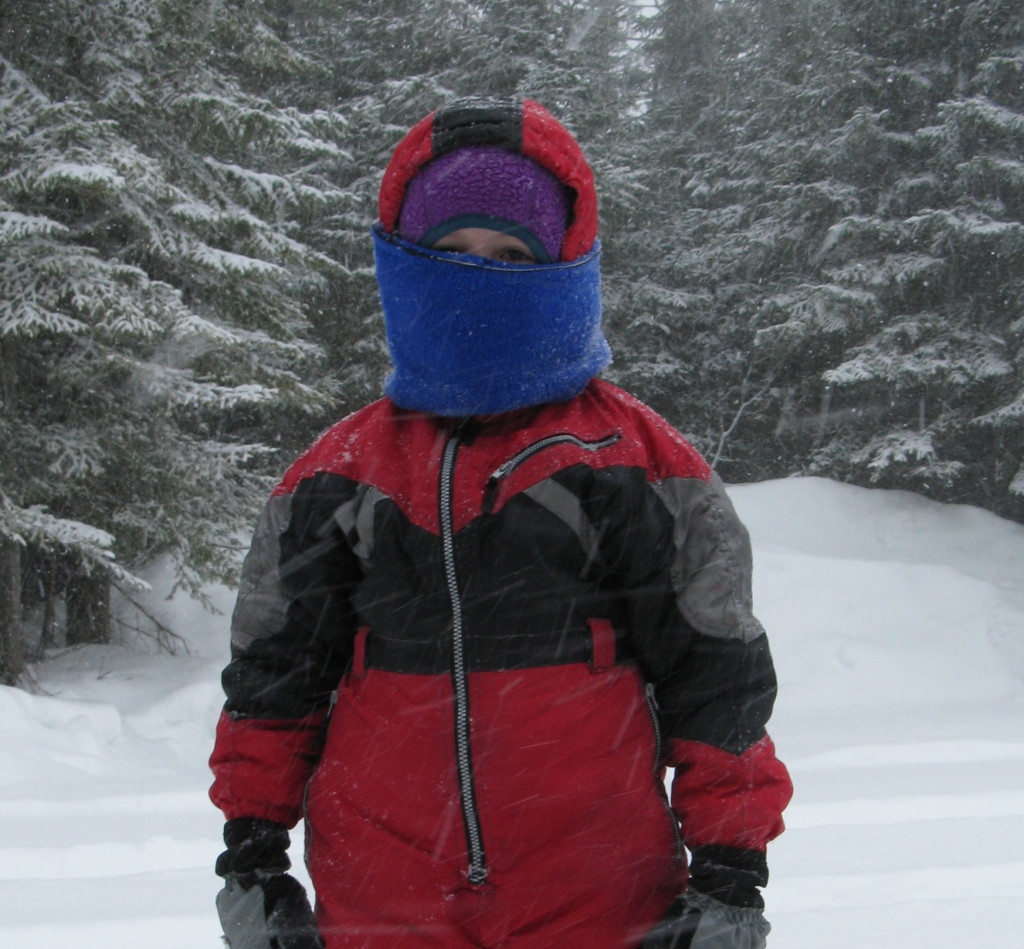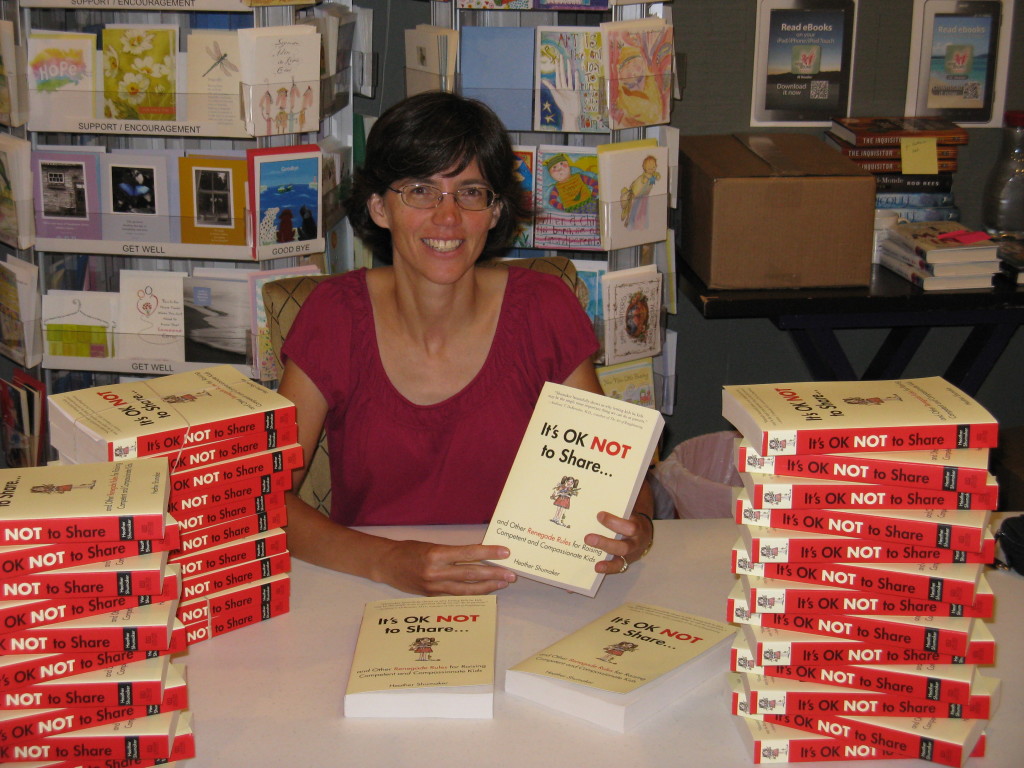A World of Books and Children
Search and enjoy 8 years of posts chock-filled with ideas from It’s OK Not to Share and beyond.
Sometimes we adults get worried about a child's attachment to a favorite blanket or toy. "He's too old for a blankie," people say. "She's got to stop carrying that old thing around," or "It's not the lovey I mind, but she sucks her thumb when she holds her lovey. We've got to wean her of it."
Not every child attaches to a blanket or special object, but for those who do, the love is fierce, deep and necessary. Who are we to break up the relationship?
A child's love for his teddy or blankie is indeed a relationship. The object is part of the child's soul. For some children, they see little difference between themselves and the blankie object. They are both "me." Taking a blankie or lovey away, for short times or forever, can be like ripping a piece of the child's soul apart.
A child who needs a lovey is practicing two wonderful emotional skills - self-comfort and love. We should not get in the way. Instead of worrying about a child's constant need for the love-object, we should rejoice. This child is demonstrating that she is capable of deep love and attachment. For now, the attachment is to a blankie. Years from now, the attachment will be to a person, cause or place on earth. A lovey can bring deep satisfaction and emotional grounding, especially in the early, wild years of swinging emotions.
 Some grown-ups dislike blankies because they see it as a crutch the child uses to hide from fears. Blankies and loveys are often used when a child feels scared. That's OK. Overcoming fears does not mean pulling a comfort object away. Overcoming fears involves taking risks in independent play. Overcoming fears also means trusting a child and giving him time to be ready.
Some grown-ups dislike blankies because they see it as a crutch the child uses to hide from fears. Blankies and loveys are often used when a child feels scared. That's OK. Overcoming fears does not mean pulling a comfort object away. Overcoming fears involves taking risks in independent play. Overcoming fears also means trusting a child and giving him time to be ready.
What about thumb sucking? If thumb-sucking continues late into childhood, we legitimately worry about dental bills. It's fine to encourage a child to put her thumb in the "thumb garage" or "thumb bed" (have her tuck her thumb snugly inside her fingers), but if she's not ready to do that, don't push it. A child will be ready in her own good time. If this means dental bills later on, so be it. Teeth are easier to fix than emotional chaos inside.
Meanwhile, don't blame the lovey. Don't tease the child about the lovey. Don't steal the lovey. Don't lie that "teddy had to take a trip." Don't cut the blankie down in size.
Talented children's author Kevin Henkes, got it wrong in his picture book Owen, a story of a boy and a blankie. Owen loves his blankie and uses it for comfort or superhero cape as his mood changes, but adults in his life think he's too old to bring a blankie to school. His mother comes up with a solution and cuts Owen's blankie into small squares he can use as pocket handkerchiefs. Owen is all smiles in the end, but this is a false ending. Any solution should be the child's. It is their soul we are talking about. A love-object should never be mutilated by cutting it into pieces - unless, of course, that is the child's desire.
How old is too old? There is no upper age limit. Teens and twenties stop carrying their loveys out in public, but many treasure them at home. Gradually, the intense need will fade, and love can be transferred to future partners and family, but a first friend is always good to have around.
Instead of scheming to banish the lovey, respect your child's deep attachment. Maybe you never found a soul-mate in a toy or piece of cloth, but support the child who has. Find and store away a second, identical blanket or object if you can, in case of loss. Label the lovey with "beloved blankie, please return" and give your phone number. We can't keep physical objects 100% safe anymore than we can keep living beings 100% safe, but we can love and respect the relationship as long as it needs to last.
What about you? Did you ever have a deep love for a blanket or toy? Is your child getting "too old" for a blankie? Tell us your story.
My kids had fun counting down the New Year. By the time midnight came, one was in bed, but my older son stayed up to watch the ball drop and leaped and shouted "It's 2015! It's 2015!"
We all need new beginnings. As I pointed out to my kids, January 1st is just one type of New Year in the world. According to our calendar, it's 2015. Soon it will be year 4713 according to the Chinese New Year. Or we can go even older and say it's 5775, following the Jewish calendar system, which celebrates New Year's in the fall.
Give yourself a New Year anytime you need it. Refresh your parenting and your relationship with your child. If you're like me, good intentions fall to the side when life gets busy, so declare today a New Year. Start afresh each month if you need to. Put a new parenting idea into action. Try something you've been meaning to try. Maybe it's renegade sharing - letting the child decide when she's "all done" with a toy - or maybe it's writing dictated letters summing up your child's big, mad feelings.
New Year's can be anytime. Children are constantly changing, and so are we. Let go of past parenting mistakes and forgive yourself. It's time to move on. Today's a New Year.
When do you think of the New Year? Fall - during back-to-school time? Spring? Mid-winter? Are you hesitant about trying new approaches since your kids are so used to your old ways? Happy New Year!
This blog is by Heather Shumaker, author of It's OK Not to Share...and Other Renegade Rules for Raising Competent and Compassionate Kids.
There's been a bit of silence on the Starlighting blog lately. That's because behind-the-scenes I've been tapping away on my keyboard to create the sequel to It's OK Not to Share. A new book is being born!
This book - untitled for the moment, but maybe called It's OK to go UP the Slide - includes three chapters that were cut from the first book because the book was too long. Those restored chapters include making mistakes and teasing/ mean words.
Up the Slide is about risk and independence. It's about screens and young children, princess play, verbal aggression ("you can't come to my birthday party") and talking with children about tough topics like school shootings and more. This book is for parents and teachers of kids in preschool, but also a little older, venturing into the elementary school years. It targets ages 3-10.
With elementary school comes new issues. Kindergarten, and options for alternate kindergarten. Increasing homework for young kids. Dwindling recess. It's OK II addresses these topics head on and helps sort out what's developmentally appropriate for elementary-aged kids and what's not. Come join me for a renegade look at homework, video games, stories with sad endings, talking to strangers and more.
The book is with the editor now and will be available in Fall 2015.
Meanwhile, what's your input on the title?
- It's OK to go UP the Slide: more renegade rules to protect children's rights to risk and recess
- It's OK to go UP the Slide: more renegade rules for the digital age
- Renegade Rules: the Sequel
- your ideas
What title do you like? What are you hoping to see in this next book? Revisions are still going on for a few weeks, and your input is welcome.



